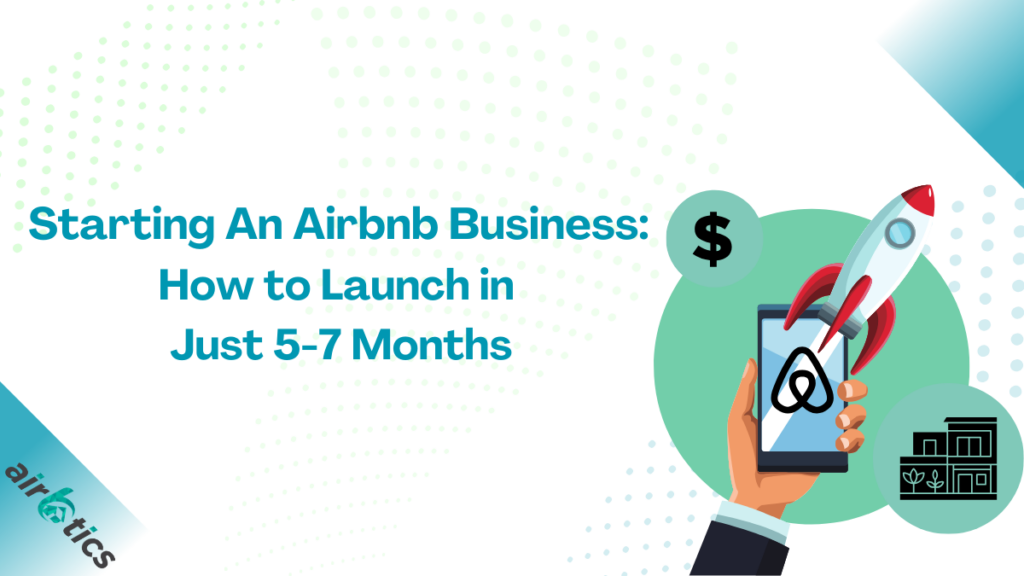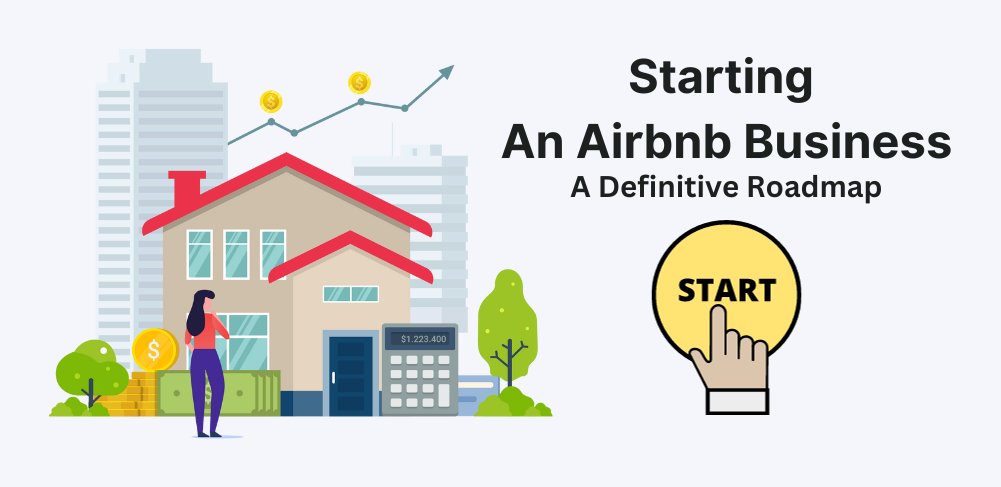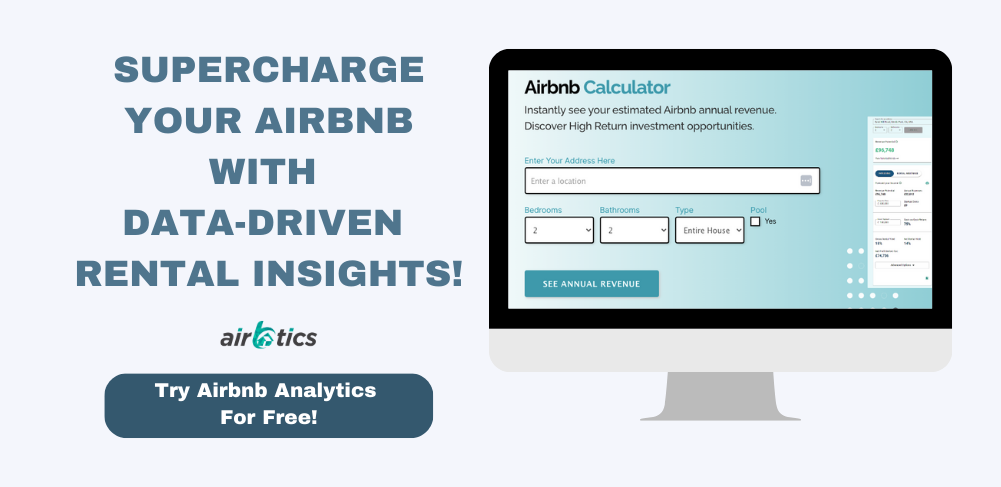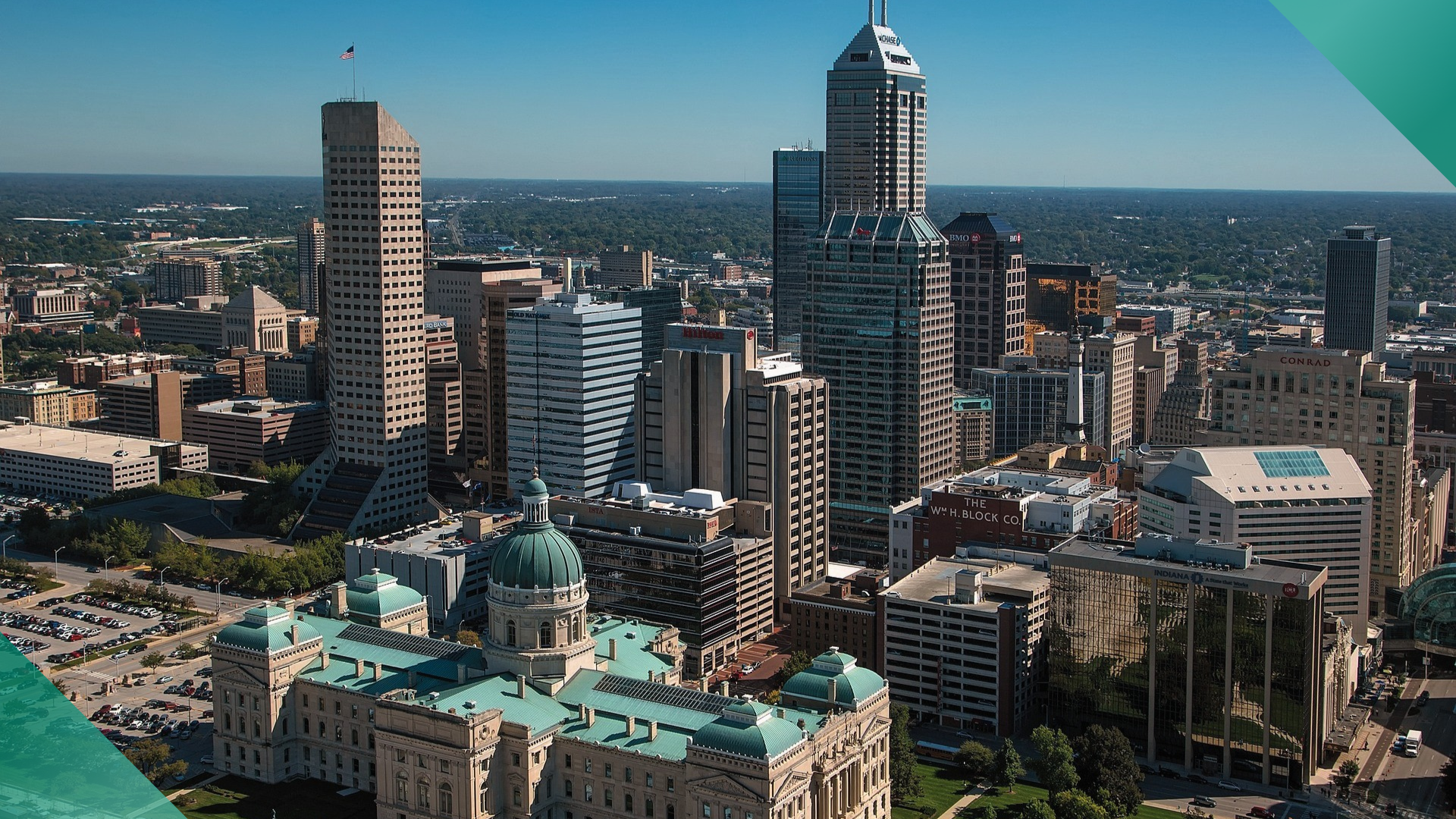Starting an Airbnb business? Let this guide be your trusted companion. Launch your hosting adventure with confidence, and success awaits in 5-7 months!

Starting an Airbnb business? Let this guide be your trusted companion. Launch your hosting adventure with confidence, and success awaits in 5-7 months!
- Last updated January 1, 2024
Starting An Airbnb Business: How to Launch in Just 5-7 Months
Starting an Airbnb business is a lucrative venture. But the question remains, “How should I begin?”
Believe it or not, a lot of people have dreamed and yet struggled to have an Airbnb startup.
Why is it so? They spend most of their time dreaming. They forget that dreams alone won’t turn the key in the door to success.
So in this article, we’ll provide you with a definitive roadmap for starting your own Airbnb! We’ll provide you with a few milestones to encourage you to finally build your rental empire.
Continue reading this because your journey to Airbnb is about to begin!

Starting an Airbnb Business for Homeowners
A property sitting vacant is a wasted earning opportunity. Imagine how much cash flow it will bring via Airbnb. In this section, we’ll show the preliminary steps that homeowners can take for an Airbnb startup.
Looking for an Airbnb property? You may skim this or go directly to the next part!
1. Check the Airbnb Demand and STR Regulation in your area
Before starting an Airbnb business, research first whether there is a substantial demand in the location of your property. Understanding the local Airbnb demand is a fundamental step in ensuring the success and profitability of your venture. This will come in handy in the next Step.
Your research does not end with demand. You should also check the local Airbnb regulations! These have become a hard pill to swallow. But fret not. Many Airbnb hosts have managed to navigate this. This is the reason why short-term rentals persist despite regulations.
Check the website of your local government as these regulations vary depending on the jurisdiction. While you should read the entire regulation, I encourage you to check the provision on zoning restrictions. Sure, you may have a vacant property, but it may be legally prohibited to be a short-term rental.
2. Dig Deeper into Your Airbnb Market
a. Look at Direct Competitors
For a solid head start, check out how your “direct” competitors are doing. Search for Airbnb listings similar to your property and arrange them by ratings.
Study them closely even before officially starting your own Airbnb. Observe and take note of their strengths. Look for goldmines by reading their guest reviews. What do guests love about their rentals? Then, replicate or even enhance those features when applying them on your own property.
b. Understand Your Audience
As you go through Steps 1 and 2a, you’re starting to get a picture of your target audience. These are the demographics that your rental may attract.
This mainly depends on your location. Is your property near outdoor recreational areas? Then, you have an active and younger audience. Is it right smacked in a financial district? You have business professionals right there. Ski and beach areas? Then, you’ll have family and bigger groups as your guests!
By aligning your rental with the desires of your target demographic, you enhance the overall experience for your guests and increase its attractiveness. Take note of this as this may become useful in Steps 3 and 4.
Starting an Airbnb Business for First-Time Investors
If you have been saving up to start your own Airbnb, then this section is for you! This part will focus on finding the most profitable Airbnb properties. And based on the hundreds of investors that Airbtics has talked to, this process usually takes less than a month.
1. Set Your Budget
How much are your savings and the portion you’re willing to allocate for property purchase? This should be clear from the get-go as you will be aware of your financial capabilities. Setting a realistic budget to start your own Airbnb provides a framework for your decision-making. This includes the location, the size, and the type of investment property.
Think of your budget as the gasoline for your investment. The higher you have, the further it can take you. But if your savings are kind of short, don’t worry! There are, in fact, short-term rental lenders who can help you finance your Airbnb.
2. Research and Buy Airbnb Property
a. Look For The Best Airbnb Cities
Even if you’re a first-time Airbnb investor, you already know that location matters in real estate. In Airbnb investing, start with a list of cities with high tourist traffic. And I’m sure you already have one!
In fact, you may have already studied the different guest demographics in those areas. You know that professionals would be your guests in urban cities. Then, you’d be hosting exchange students and artists in university towns. If there’s an amusement park, you’d be having multi-generational guests with kids!
But the key question is, “Which city on your list offers the best return on investment?” In this case, we will try to maximize the budget that you’ve set in Step 1.
Let’s use the widely accepted standard to assess ROI. Gross rental yield is determined by dividing the average annual revenue of an Airbnb city by its median property price.
Market’s Gross Rental Yield =
(Average Airbnb Annual Revenue / Median Property Price)
Median property prices are available on online realtors like Redfin. But to access the average annual revenue of any Airbnb city, you can always rely on the Airbtics Dashboard. Then, you can tabulate these cities on your list according to the highest gross rental yield!
Of course, you should also consider the local Airbnb regulations. As we have mentioned before, these vary depending on the city. So, it’s best to check the local government website for specific details.
While I encourage you to read the whole regulations, specifically look if there’s a night cap in your chosen city. This simply means that there’s a limit on the number of available nights for Airbnb bookings. Hence, this may also put a “cap” on your earnings.
b. Buy An Airbnb Property
According to a 2023 report by the National Association of Realtors, buyers typically spent 10 weeks searching and visited a median of five homes. The length will depend on your budget (covered in Step 1) and how you do a property search.
You’ve already identified the city. But have you considered whether you should buy a condo or a house? And how many rooms should your property have?
Before doing a property search, why not answer those two questions first? The best property type and property size for Airbnb depend on your chosen Airbnb city. You can find yours by following our guides below:
Once these two are clear, you can now confidently look for properties on the following real estate websites:
NORTH AMERICA
UNITED KINGDOM
EUROPE
- Immobilienscout24 (Germany)
- Seloger (France)
- Idealista (Spain, Italy, Portugal)
AUSTRALIA
As we have said, Airbtics users usually find a profitable Airbnb property in less than a month. But home purchase typically takes another 50 days on average.
3. Consider Adding Amenities
Getting booked is among the initial challenges of an Airbnb startup. In fact, it is the most crucial. Why would guests book you? You’re an inexperienced host, competing with the rest who already has a proven track record.
A way to address this is by offering as many amenities as you can! Equip your Airbnb startup with the amenities that your guests are used to. Sometimes, a simple wifi connection can be enough. If your rental is in a cold climate, consider investing in a reliable heating system. Humid area? Then, air conditioners can provide a cool sanctuary from the heat outside.
Got an extra budget? You may even consider adding a hot tub for Airbnb, and you’ll be surprised by how it can attract guests. Do you have an empty backyard? Then, a swimming pool for short-term rental is also worth exploring.
4. Furnish Your Airbnb
When starting your own Airbnb, furnishing is the time to use your creative flare! While some may enjoy dolling up an empty space, I know others who don’t! From buying items to placing them in your Airbnb, this Step can be a bit stressful.
Remember when we said that you had to understand your audience? This will be really helpful for this. When you assess your guests’ needs and preferences, you can easily decide what to include in your rental. Of course, you have to cover the basics first! And here’s the Airbnb startup cost for that.
When dolling up your rental, consider not only individual items but also their collective harmony. Envision how these pieces interact with various flooring or wall colors to create a cohesive and visually pleasing arrangement. If furnishing isn’t really your cup of tea, you can always hire an interior decorator to cover this.
5. Create an LLC
Creating a limited liability company (LLC) sure has a lot of perks. For one, it allows you to open a dedicated bank account for your Airbnb business. It’s just one of the basics of any business, separate its finances from your own.
Moreover, creating an LLC provides an additional layer of security, especially valuable for first-time Airbnb hosts.
In the unpredictable area of hosting, unforeseen circumstances such as lawsuits or Airbnb-related debts can arise. An LLC becomes a safeguard, entitling you with “limited liability” in legal disputes. This shields your personal assets, offering a protective measure against unforeseen challenges.
6. Insure Your Investment Property
For first-time hosts, getting insurance is a smart and essential move. Imagine having spent a huge money on a property that will be exposed to a lot of potential risks. You might say that you already have a homeowners insurance. But sadly, your rental is not covered since you’re using it as an Airbnb business.
All Airbnb hosts are automatically protected by AirCover, the company’s own insurance. However, it doesn’t cover damages from wear and tear and natural calamities. So, you need to have additional insurance for property damage caused by unforeseen events. This ensures that your investment is properly safeguarded.
As a first-time host, the peace of mind that comes with insurance is invaluable. This allows you to focus on delivering an exceptional guest experience without the constant worry of unexpected financial burdens.
7. Comply with Legal Requirements in Your Area
Have you researched the Airbnb regulations in your area? The initial stage to legally start your own Airbnb is the registration of your rental. Depending on the jurisdiction, the local government may require you to do one or more of the following:
- Obtain a Business License
- Obtain a Business Permit
- Pass Building and Housing Standards
- Secure Special Permits
As we have said, different cities have different regulations. And some may even require you to obtain a business license BEFORE listing your property on Airbnb. To ensure compliance with the legal requirements in your area, read the Airbnb regulations available on your local government’s website. You can also find the detailed process on how to apply as well as other documents that they may require.
8. List Your Property on Airbnb
Your Airbnb debut isn’t complete until you create a listing! It means guests can now find and book your rental on the platform. Now put your property out there to make some money! Read our article on Airbnb listings for a step-by-step guide!
9. Decide Between Professional or Do-It-Yourself Airbnb Management
Technically, you’re done with all the steps in starting an Airbnb business. But it’s time to decide how your rental will be managed.
Airbnb hosting is mainly about interacting with guests. This covers responding to booking inquiries and other guests’ concerns promptly and professionally. Aside from this, you will also have to look after your property. Is it cleaned between guest stays? On top of routine maintenance, you will also need to address emergency repairs.
The list of hosting tasks can go longer than this. We understand that this may be overwhelming, especially for hosts just starting an Airbnb business. Some may respond to guests’ needs with a smile on their faces. But it’s normally fine if you don’t see yourself enjoying such interactions.
In fact, you can outsource the day-to-day and routine tasks to a professional. Airbnb property managers who can bring their expertise to help your rental grow. Of course, they come with a cost.
Aside from paying them via commission, you’re actually throwing the keys to the car. You’re relinquishing them the control over your property.
These are actually the things you need to consider. And if you decide to hire an Airbnb manager, research well as not all of them can provide good quality service.
What Are Airbnb Taxes?
Before starting an Airbnb business, hosts should know the potential taxes on their rental income. Tax regulations vary by location, so hosts must check with local authorities or consult a tax professional for specific guidance. Common taxes that hosts may encounter include:
- Income Tax
- Sales Tax
- Occupancy Tax
- Sales Tax
- Tourist Development Tax
- Value Added Tax
The applicable taxes and their rates vary significantly from one city to another. It’s best to familiarize yourself with the specific tax regulations in your location to ensure compliance with local laws and regulations.
Transform Your Dream Into A Reality
Starting an Airbnb business is an exciting venture that holds potential for both financial success and personal fulfillment. Sure, dreaming about the possibilities can be a good start. This article is more than just a source of inspiration. It equips you with an actionable roadmap to transform these dreams into a reality!
So get the ball rolling! Use the insights provided here to navigate the challenges, make informed decisions, and carve your niche in the competitive Airbnb market.
As you take each step, remember that the journey is as just important as the destination. Embrace the learning curves and celebrate small victories earned along the way!
Got a property for Airbnb? Then get accurate return on investment by using the most powerful Airbnb Calculator!
Short-Term Rental Data
Short-Term Rental Data
-
Quick Links
Investing in Property for Sale: How to Buy A Profitable Property for Airbnb in Indianapolis City Center
airbnb property for sale Indianapolis City Center Indianapolis is a remarkable city that continuously develops and offers plenty of opportunities for property investors. Aside from …
Annual Airbnb Revenue in Hays kansas, USA
Hays, Kansas| Airbnb Market Data & Overview | USA Hays, Kansas Airbnb Market Data & Overview USA Is it profitable to do Airbnb in Hays, …
Annual Airbnb Revenue in Ontario oregon, USA
Ontario, Oregon| Airbnb Market Data & Overview | USA Ontario, Oregon Airbnb Market Data & Overview USA Is it profitable to do Airbnb in Ontario, …
Annual Airbnb Revenue in Jasper indiana, USA
Jasper, Indiana| Airbnb Market Data & Overview | USA Jasper, Indiana Airbnb Market Data & Overview USA Is it profitable to do Airbnb in Jasper, …
Annual Airbnb Revenue in Bordeaux france
Bordeaux| Airbnb Market Data & Overview | France Bordeaux Airbnb Market Data & OverviewFrance Is it profitable to do Airbnb in Bordeaux, France? What is …
Annual Airbnb Revenue In Casablanca Morocco
Casablanca| Airbnb Market Data & Overview | Morocco Casablanca Airbnb Market Data & OverviewMorocco Is it profitable to do Airbnb in Casablanca, Morocco? What is …





